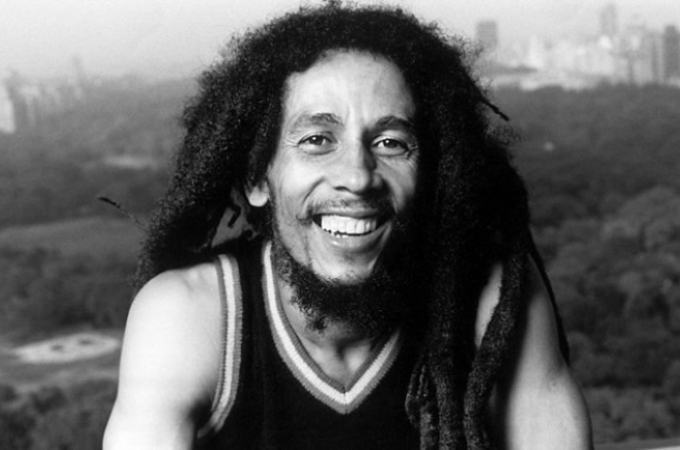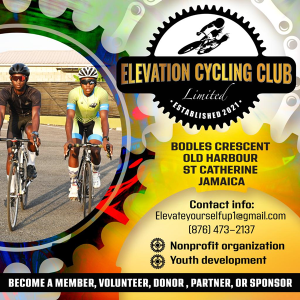Bob Marley deserves National Hero status

He was not a politician and did not engineer the country's quest for independence; neither was he a freedom fighter who gave his life for a cause. But he was a man of courage and will, ready for the challenge of change.
If two former premiers were bestowed National Hero status, then Michael Manley, regarded as the most loved, most strategic Prime Minister who significantly changed the vision, status, mental landscape, and outlook of an entire country and got the world as a whole to fall behind him, should be in the conversation as one of the country's National Heroes. But that is for another article.
Since this is not yet a push for Michael Manley to be a National Hero, I will continue my quest to help bring awareness to why Bob Marley deserves this national honor. I know that I will hear from the pundits that comparing heroes to non-heroes is not a proper thing to do. It is important, however, because these decisions should not be political or emotional. Instead, it should be a logical committee decision. The facts should be examined critically so that the people can feel satisfied and proud that the efforts of our leadership and the bestowing of national honors are in congruence with their wishes.
I have spent an enormous amount of time reading about the lives of our national heroes. The narrative suggests enough evidence to convince our people that they are, in fact, Jamaica's heroes. Understanding a bit more about life today, far from my days as a youth, I believe I can decide what I will and will not accept if I am going to be convinced. The same is true for the rest of the Jamaican population. It's common knowledge that Paul Bogle put himself in harm's way and died for the freedom and abolishment of slavery. The same happened to George William Gordon, who received an early release from enslavement from his father and was killed because he wanted better treatment for black people, disagreed with the Governor on the matter, and was hung.
Nanny fought against oppression and for the freedom of the Maroons. There was immense pressure in the 1970s from citizens who called for a female National Hero. All five prior were male figures. Nanny was named our sixth hero in 1975, a move that was also aligned with encouraging equality in salaries for women at the time.
Sam Sharpe, the boldest of all, died on the gallows exclaiming that he would rather die than live in slavery. Except for Nanny, three of these four heroes held high positions in the church: Bogle, a deacon; Sharpe, a pastor; and Gordon, the owner of a Baptist Church.
Marcus Mosiah Garvey, the first of our National Heroes, was different. Marcus' prominence was elevated after he left Jamaica and entered the United States in 1916. He started the UNIA in 1914 and became a world-renowned figure in black communities worldwide. His popularity made him a successful business within a few years, but he was tried and sentenced to prison for mail fraud. J Edgar Hoover, a prominent FBI agent at the time, was responsible for his arrest. Garvey's legacy as a significant figure among Blacks worldwide was enough for our Jamaican government to make him a national treasure.
Bustamante and Father Manley, convenors of the JLP and PNP respectively, led the country early at different periods. The PNP was formed by Normal Manley in 1938, and the JLP by Alexander Bustamante. Their foresight as leaders and paths in Jamaica's early political journey led them to their seats as National Heroes.
In setting the tone with this historical view, the question is: how does Jamaica determine a National hero? All seven leaders achieved national honors by carving out their places in the Jamaican history books. Based on the statutes in Jamaica, to attain National Hero status, the scroll reads; "The honor of the Order of National Hero may be conferred upon any person who was born in Jamaica or is, or at the time of their death was, a citizen of Jamaica and rendered to Jamaica service of a most distinguished nature. A member of the Order is entitled to be styled "The Rt Excellent," and the motto of the Order is "He built a city which hath foundations."
The definition is intentionally vague to give a committee discretion and latitude in deciding who will be named. The last statement in the scroll makes the difference. "He built a city which hath foundations." The next question is: does Bob Marley fit the definition of a national hero? Did He build a city which hath foundations?" (The word "foundations" is not singular). Does Marley, in death, fit the role of another national hero? Has he served with distinction? His resume is very different from the other seven heroes. He is not a religious leader but a religious Rastaman. He didn't die for a cause, but he is dead. He was not a political leader, but he set an example for them to unite and work as one for the people. The answer, therefore, should be evident.
In 1929, Marcus Garvey started Jamaica’s first modern political party, the People’s Political Party (PPP), but could only win one seat in Kingston; the Party quickly died. His work is comparable to that of Bob Marley. The only difference is that Marley's impact is 100-fold more significant. Marley positively impacted the rich and poor from all countries, including his own Jamaica. He changed people's lives from all continents and all races: black, pink, blue, white, yellow, and purple. Bob's tentacles bring people from across the world to Jamaica, and the ones who cannot visit become their own versions of Bob, the Rasta. Like Marcus, Bob is an international change-maker who extended the Rasta culture that is now accepted all over the globe. The stigmas from the 60s-70s of the "horrible and dutty" dreadlocks are ancient history, and a vast population of Bob Marleys worldwide work in high-quality jobs. Marley is not just about music; he is a system, an economy, and a world culture. He is the epitome of "Jamaica to the wurl."
Let us examine further the make-up of a National Hero and compare it with the qualities of who and what Bob Marley is or represents. He is a person who was born in Jamaica, is a Jamaican, and, at the time of his death, was a citizen of Jamaica and has rendered to Jamaica service of a most distinguished nature. He also built not just a city but a world with many foundations: east, west, north, and south. No other single Jamaican has such a global cultural, economic, or musical change-making impact. It's an honor to be a Jamaican on the international scene when you hear references to Bob Marley, even if you were born after his death. Bob has moved Jamaica's needle in ways unknown.
So what is the hold-up from honoring him with the deserved ultimate honor? His dread? No? Oh! He smoked weed when it was illegal. Weed is decriminalized today in Jamaica; a non-issue. Martin Luther King was arrested 29 times, and Paul Bogle, George Wiliam Gordon, and Sam Sharpe once each. It is understood that the work of our forefathers set the foundation for our country. Bob Marley quickly broke down barriers and built cultures as he traveled and sang. Little Bob Marleys are popping up everywhere, insisting on their rights to be Rasta's and wear their natural hair.
Such a body of work with many accomplishments started with a very unsophisticated but charismatic genius of a man without the respect he deserves in his own country. Eben Diskin wrote on Bob for the Royal Caribbean Cruise Lines that Marley introduced to the world not only Jamaican music but also Rastafarianism, rooted in ideas of personal and spiritual freedom, peace, love, and cultural unity and that because of Marley, the spiritual underpinnings of Jamaica have made their way to the rest of the world.
All our National Heroes were amazing individuals who stood for everything Jamaica. Even in death, however, 42 years later, Bob Marley is still breaking barriers, mending fences, and building immeasurable assets, not just musically but in people.
I hope Bob Marley gets his just-due soon.
Bob For National Hero #BFNH
Leo Gilling is a Diaspora Strategist & Engagement Advocate; and Chairman, Jamaica Diaspora Taskforce Action Network (JDTAN). Send feedback to leogilling@gmail.com.
Old Harbour News is a community-based online news media outlet based in Jamaica with more than 300,000 unique visitors since 2013. However, we are soliciting your support to continue provide independent journalism and unique stories tailored just for you. Your contribution, however small it may be, will ensure our service to you remain independent and grow to serve you better. Click the DONATE BUTTON now to support Old Harbour News. Thank you.





























